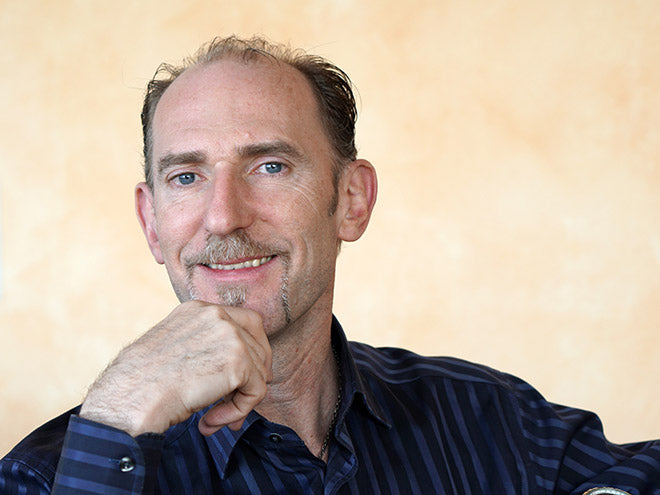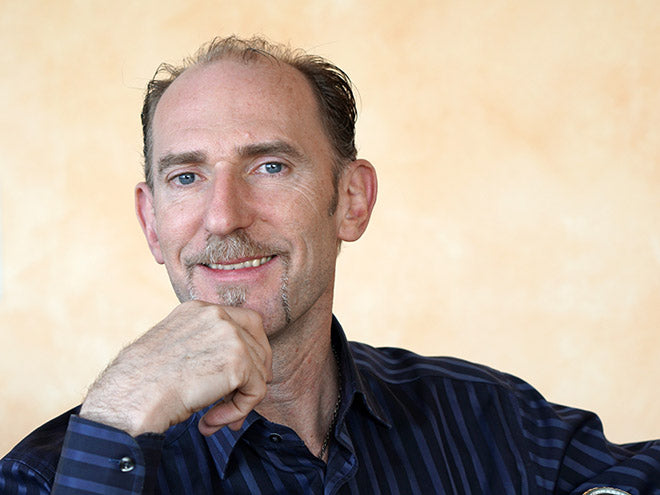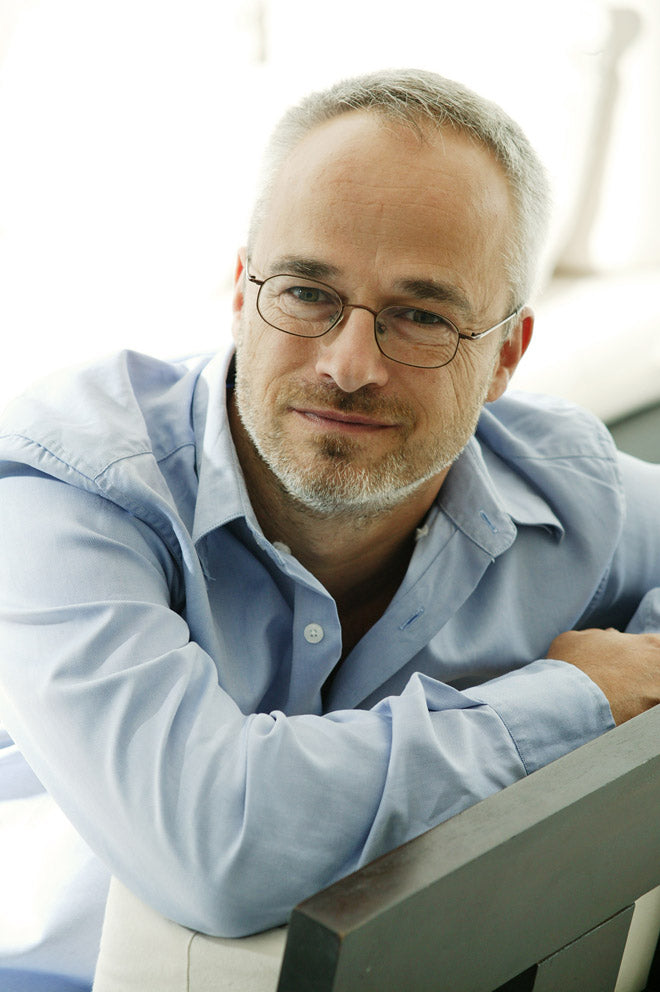
"Smoking is not an addiction!"
"Smoking is not an addiction!"
Interview with bestselling author Andreas Winter
"Smoking is not an addiction, but rather a behavioral conditioning. Anyone who is aware of the actual cause of their smoking behavior can control it as they wish or even stop smoking altogether. But the tobacco companies and the medical industry convince smokers that they are addicted - purely for economic reasons!"
As usual, the qualified teacher Andreas Winter uses clear words in his book “ Nicotine Addiction – the Big Lie ”; with the help of his depth psychological approach, thousands of his readers and clients have been able to stop their cigarette consumption or control it as desired.
The first volume of the Psychocoach series (“Nicotine addiction – the big mistake”) was published in 2013 in a revised paperback edition – with a slightly different title: “Nicotine addiction – the big lie”. What was and is new about this guide?
Winter: In my current book, I describe two important things much more clearly than before: Firstly, what exactly is behind the so-called feeling of craving that makes smokers smoke and why they believe they are addicted to nicotine. Secondly, I go into more detail about the economic interests that make smokers believe that it is difficult to stop smoking. The first edition of the book was very reserved because I myself did not want to accept that not only the tobacco industry, but also our supposed healers, the medical industry, knowingly accept millions of deaths out of greed for profit. That has changed, hence the new version, which is also written in a more understandable and technically up-to-date manner.
Nine years have passed since the publication of “Nicotine Addiction – the Big Mistake”. What reactions have there been so far from the medical community or from other approaches to smoking cessation?
Winter: I have received a lot of positive feedback from doctors and alternative practitioners who have been able to use my approach to help smokers (or themselves) to "click in their heads". The participants in my training courses to become non-smoking coaches are increasingly coming from these professions, but surprisingly also "renegade" employees of pharmaceutical companies because they want to learn the method I have been using for over 25 years. My theses are also quoted by authors from the smoking cessation industry, sometimes directly, sometimes indirectly, such as by Christian Opitz in his current book "Free Breathing". I believe that it will not be long before word gets around among smokers how easy it is to give up smoking, although of course the industry does everything it can to keep people in a profitable dependency with lies.
A “click in the head” ensures that smoking can be given up without relapse. How can we imagine this and what exactly does the smoker have to do to achieve this?
Winter: There are two ways to become smoke-free: you can either simply become aware of what triggers your desire to smoke, recognize why a cigarette in particular satisfied this desire, and then instead of smoking, remember exactly what smoking meant to you. Or you can use psychological means to resolve the cause of your smoking behavior. This cause is usually a feeling of being patronized, which can be masked for a few seconds by an action - forbidden for children - namely smoking. In both cases, once you become aware of it, a cigarette is perceived as emotionally worthless.
If smoking does not actually cause physical addiction, how can it be that people continue to smoke despite suffering from lung cancer or other health problems?
Winter: That is what I describe in all my books: the body is often our least problem. For example, if you are addicted to heroin, you would experience painful withdrawal symptoms for two or three days due to physical abstinence, but after that the body would be able to get by without heroin altogether. The psyche, on the other hand, can create a craving for a lifetime. However, it does not need drugs or medication, just their effects. In addition, this psychological component can be resolved within a single second of awareness, which is why I do not call it an "addiction" but rather what it is: conditioning. In addition, we humans can develop a great capacity for suffering. As long as cancer is still perceived as a lesser evil than the tormenting pressure of expectations and the feelings of being patronized, we accept the disease. It is my job as a coach to make people aware of these connections.
Around five million smokers die every year worldwide. What do you suggest to bring about change?
Winter: I am calling for a change to the WHO definition of addiction. The WHO, the World Health Organization, is a kind of Vatican of doctors and dictates what doctors should believe. The current definition does not differentiate between physical and psychological dependence, but basically implies that addiction requires medication. But there is no such thing as psychological addiction. A learned behavior pattern cannot be combatted with medication. You have to make a bit of an effort and really engage with the person if you want to help them. But the tools for this have been available for a long time. These five million people would not have to die from the consequences of smoking or its treatment if they simply smoked an occasional cigarette or did not smoke at all. But as long as these people are made to believe that they are addicted and need medication, the whole thing should not be called a "health service"!
Who has an interest in smokers being considered addicts, and what are the consequences for their treatment?
Winter: The smoking cessation industry goes to great lengths to convince smokers that it is the nicotine that makes them smoke, and tries to distract from the fact that they were "trained" to smoke in childhood. The incredible lie that an ex-smoker must abstain forever in order to avoid relapsing makes many smokers fear having to do without something or failing. So they continue smoking instead of cutting down. Economic interests, not only on the part of the tobacco companies, but also on the part of the medical profession, keep smokers dependent. The people we entrust our health to are the ones who have the least interest in us actually being healthy. You can make a lot of money through regular smoking cessation, and even more so through the subsequent cancer treatment, which of course would not be necessary if you helped the smoker to lead a healthy lifestyle without stress, discipline and fear of illness and relapse. My customers and readers have been showing for years that this is possible.
According to your approach, it would also be wrong to speak of gambling addiction, sex addiction, eating addiction, internet addiction, collecting addiction or even alcohol addiction. How do those affected react to this "dispute" about the term addiction?
Winter: Some of those affected, especially members of self-help groups, are initially offended because they feel they have been robbed of the irresponsibility they have grown fond of - after all, if you are not addicted, you could simply change your behaviour, but without appropriate therapy, this is of course almost impossible. This is why "addicts" feel guilty about their behaviour and feel like failures. But if you tell them: "It's not your fault that you drink, gamble, smoke, you are addicted!", at least the feeling of guilt disappears. The realisation that you are conditioned like a trained dog and are compensating for self-esteem problems is therefore very embarrassing for many. But if the level of suffering increases or people become seriously ill, everyone is ultimately happy when they are presented with a simple solution that can be implemented within a few days. Anyone who has the experience of being able to break out of a behavioural pattern usually enjoys their maturity and their regained freedom.
The power of symbols is an important factor in the development of compulsive smoking behavior. Why is it that one person only uses cigarettes occasionally, while another cannot seem to give them up?
Winter: With our seven billion brain cells, humans are able to relate everything to everything else, to link things together. We can perceive the ringing of the school bell as a burden or as a relief in very different ways, depending on whether we are looking forward to class or recess or not. This is possible even though a school bell per se has no meaning at all. This has to be learned first. We can also learn that cigarettes are forbidden for children and conclude from this that anyone who smokes is not a child. And this is exactly the feeling that is subconsciously recalled when we take a drag on a cigarette if we are conditioned to do so. Anyone who does not feel chronically patronized or for whom a cigarette is not the "solution" to this emotional imbalance can easily do without the cigarette.
There is currently a trend in the cigarette industry towards “clean” consumption without additives. How would you interpret this phenomenon from your experience?
Winter: Cigarettes without preservatives are certainly better than those that contain shredded CDs and therefore a high dose of dioxin, as has been found in some Eastern European brands, for example. I don't think smoking is particularly dangerous in itself - do you know a smoker who became ill primarily because of cigarette consumption? Cigarettes only become really dangerous when stress hormones and toxins build up over the years to form a disease-causing mixture. Stress hormones make many harmless things, such as sugar or cat hair, a health threat. The "cleaner" the cigarettes are, the less afraid the smoker is of smoking them - and I welcome that, because fear makes you ill. Although I think that if you smoke one or two cigarettes a week, it doesn't matter how toxic they are. You shouldn't smoke more often or more regularly anyway, because it's ridiculous to spend money on a symbol whose effect you yourself create.
The case studies address a wide range of reasons for smoking. Which smoking cessation initiative do you remember most?
Winter: I have to read my book again. There are so many cases that I remember them best when I write about them. But just this morning I had a desperate smoker in the practice. In his late fifties, smoking eighty cigarettes a day, or one cigarette every ten minutes. A few days ago, with the help of my book, he managed not to smoke for four hours, which really encouraged him to come and see me. With me, he realized that he smoked to defend his freedom. Even in the womb, he had felt that high expectations were placed on him and his health. We resolved this in a simple but intense dream journey. Interestingly, he was in no particular hurry to leave the practice after the appointment. He chatted with me for another quarter of an hour before saying goodbye, noticeably grateful and smiling happily.
It doesn't always happen that quickly, but in the book I also described the "shortest smoking cessation of my life". It took about five minutes and was very successful. Also impressive was a study from 2003 that was filmed by Sat1, in which almost 40 smokers were able to control their smoking behavior just by filling out a questionnaire. Some even stopped smoking completely!
Book tip:
Andreas Winter: Nicotine addiction - the big lie. Why smoking is not addictive and not smoking can be so easy! With video coaching for download. Mankau Verlag, 2nd edition 2016, 12 x 19 cm, 188 pages, 9.95 euros (D), ISBN-978-3-86374-080-1.
Link recommendations:
More information on the guide "Nicotine addiction"
More information about the webinar
To the reading sample in PDF format
More about Andreas Winter
To the Internet forum with Andreas Winter









